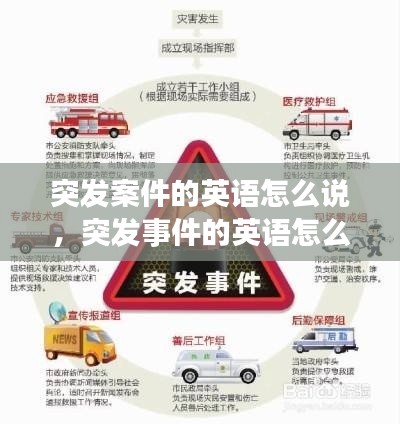Introduction
In any given situation, the term "emergency" or "sudden incident" often refers to an unexpected and critical event that requires immediate attention. These occurrences can range from natural disasters to accidents or even criminal activities. When discussing such cases in English, it is important to use the appropriate terminology to convey the urgency and nature of the situation.
Defining "Emergency" and "Sudden Incident"
The English language offers several ways to describe a "sudden case" or "emergency." Here are some of the most commonly used terms:
- Emergency: This term is often used to describe a situation that poses an immediate threat to life, health, or safety. It can refer to both natural and human-made disasters. For example, a medical emergency, a fire, or a terrorist attack.
- Sudden Incident: This phrase is more general and can refer to any unexpected event that occurs rapidly. It is often used to describe accidents, crimes, or any other unforeseen circumstances that require quick response.
- Unforeseen Event: This term emphasizes the element of surprise and unpredictability of the situation. It is a broad term that can cover a wide range of emergencies, from sudden health issues to unexpected technological failures.
- Unexpected Incident: Similar to "sudden incident," this phrase highlights the surprise element and is often used in legal or formal contexts.
- Crash: When referring to a sudden and often catastrophic event, such as a car accident or a plane crash, the word "crash" is commonly used.
- Breakdown: This term is often used to describe the sudden failure of a system or machine, such as a power breakdown or a vehicle breakdown.
Expressing the Nature of the Emergency
When describing a sudden case in English, it is essential to convey the nature of the emergency. Here are some ways to express the severity or type of emergency:
- Life-threatening: Used to describe an emergency that poses a significant risk to life.
- Severe: Indicates that the emergency is serious and requires immediate attention.
- Critical: Refers to a situation that is extremely urgent and may lead to severe consequences if not addressed promptly.
- Disaster: Used to describe a widespread emergency that has catastrophic effects.
- Accident: Commonly used to describe an unexpected and unfortunate event that causes harm or damage.
- Crime: Used when the emergency involves a criminal act or activity.
Reporting a Sudden Case
When reporting a sudden case, it is crucial to provide as much information as possible to ensure a timely and effective response. Here are some key points to consider:
- Location: Clearly specify the place where the emergency is occurring.
- Time: Mention the time when the emergency was discovered or when it began.
- Description: Provide a detailed description of the event, including any visible injuries, damages, or other relevant information.
- Number of People Involved: If applicable, indicate the number of individuals affected by the emergency.
- Emergency Services Needed: Specify the type of emergency services required, such as police, fire, medical, or rescue teams.
Handling a Sudden Case
When faced with a sudden case, it is important to remain calm and follow the appropriate steps:
- Assess the Situation: Determine the severity of the emergency and ensure your safety before taking any action.
- Call for Help: Contact the relevant emergency services and provide them with all the necessary information.
- Follow Instructions: Listen to the instructions given by emergency responders and follow their guidance.
- Evacuate if Necessary: If instructed to do so, evacuate the area to ensure your safety and that of others.
- Provide Assistance: If you are able, offer help to those affected by the emergency.
Conclusion
Understanding how to describe a "s
转载请注明来自九江开发区科特金属配件厂,本文标题:《突发案件的英语怎么说,突发事件的英语怎么说 》












 蜀ICP备2022005971号-1
蜀ICP备2022005971号-1
还没有评论,来说两句吧...